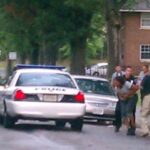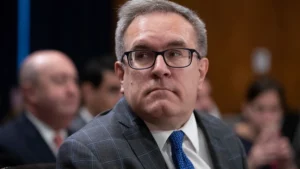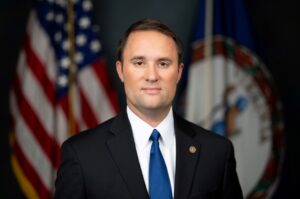by James C. Sherlock

Photo credit: Richmond Times-Dispatch
Being a law enforcement officer is tough under the best of circumstances.
Do you think that exposure to losing your house and car in a civil suit for something you did in a split second to protect the public and yourself and did not have reason to know was against the law would deter you from a job in law enforcement?
Truth is, it would deter all of us.
Virginia Democrats in 2021 introduced legislation to eliminate under Virginia law a peace officer’s ability to offer an immunity defense in state courts against civil lawsuits for actions that violate constitutional rights:
A. Any law-enforcement officer, as defined in § 9.1-101, who, under color of law, subjects or causes to be subjected, including failing to intervene, any other person to the deprivation of any rights, privileges, or immunities granted to such person under the constitutions and laws of the United States and the Commonwealth, shall be liable to the injured party for compensatory damages, punitive damages, and equitable relief….
B. Sovereign immunity and any limitations on liability or damages shall not apply to claims brought pursuant to this section. Qualified immunity is not a defense to liability imposed by this section.
A 2017 per curiam (unanimous) opinion by the Supreme Court reiterated a long-existing legal standard that qualified immunity is an available defense for law enforcement officers unless there is “clearly established law giving each individual Officer fair notice that his particular conduct was unlawful.”
It is hard to imagine that the Supreme Court, unanimous there, would permit a state law that denied civil immunity without fair notice of the illegality of specific acts.
Regardless, under the 2021 Democratic bill in Virginia, officers were to be in jeopardy in civil suits whether or not they had fair notice that their actions, split-second or otherwise, were unlawful. They were specifically to be required to judge the constitutionality of specific actions.
With a gun in their face.
It draws a very clear line for political debate. Continue reading →
 by Joe Fitzgerald
by Joe Fitzgerald 

 by Kerry Dougherty
by Kerry Dougherty
 by Kerry Dougherty
by Kerry Dougherty










